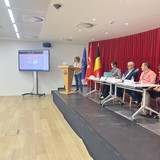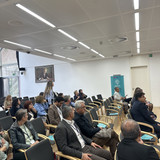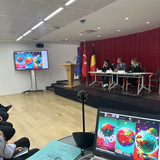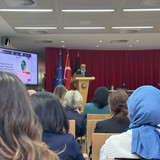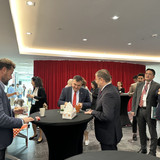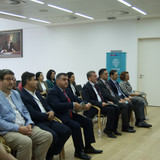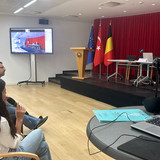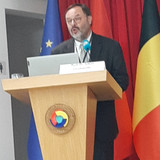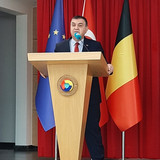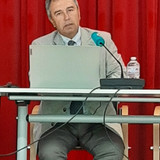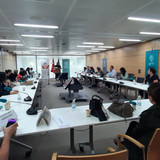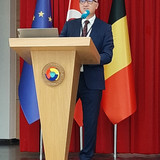Multiplier Events
International Symposium on Teaching Turkish as a Heritage and Foreign Language (ISOHTEL 2023)
Brussels, Belgium – The Symposium on Teaching Turkish as a Heritage and Foreign Language was held on September 26-27, 2023, at the TOBB Representative Office in Brussels, as part of the Language Tree Erasmus project. The symposium commenced with an opening speech by Ambassador Faruk Kaymakcı, the Permanent Representative of Turkey to the European Union.
Among the protocol participants were Brussels Consul General Umut Deniz, Antwerp Consul General Batu Kesmen, Advisor Dr. Hilal Tanrıkut, Vice-Rector of Kastamonu University Prof. Dr. Mehmet Atalan, Brussels Education Counselor Hümeyra Altuntaş Kıran, Düsseldorf Education Attaché Gamze Bozgöz, and TOBB Representative Office EU Affairs Director Seval İskender. Following Ambassador Kaymakcı's speech, welcoming addresses were delivered by Vice-Rector of Kastamonu University Prof. Dr. Mehmet Atalan, representing the project coordinator institution; Şener Uğurlu, President of the Institute for Turkish Studies, Integration and Research, representing the host institution; Harun İlçioğlu, coordinator of the Language Tree project; and Assoc. Prof. Dr. Feyza Altınkamış, head of the symposium organizing committee.
The first speech, emphasizing the significance of the European Day of Languages on September 26, was delivered by Prof. Dr. Rik Vosters from the Department of Linguistics and Literary Studies at Vrije Universiteit Brussel. Prof. Vosters provided information about the multilingual profile and language balances of Belgium and Brussels and introduced the “BXL-Linguistic Heritage” project.
Invited speakers at the symposium included distinguished academics such as Prof. Dr. Kutlay Yağmur, Prof. Dr. Yavuz Kartallıoğlu, Prof. Dr. Mehmet Ali Akıncı, and Prof. Dr. Johan Vandewalle. Their talks focused on multilingualism, teaching Turkish, and the challenges faced.
The hybrid symposium featured 38 in-person and 32 online presentations. These presentations were streamed live through the social media channels of the project partner institutions and via YouTube. Approximately 110 people attended the symposium, including project partners, researchers contributing with in-person presentations, parents interested in Turkish, and representatives from local media organizations. Following all the presentations, fruitful scientific discussions and Q&A sessions were held.
One of the notable segments of the symposium was a special session dedicated to the outcomes of the Language Tree Project. During this session, the current status and results of the project outputs were shared with the participants. The findings obtained, materials developed, and methods applied within the project were discussed in detail. Project partners and other participants shared their views on these outputs, providing insights and suggestions for future work.
Key topics highlighted at the symposium included the need for lesson materials prepared by local experts aware of the Turkish language needs of children abroad, the redefinition of the concepts of heritage language and mother tongue, the development of specific Turkish programs for different family structures, and the more effective preparation of teachers sent by the Ministry of National Education for their overseas assignments.
The symposium's master of ceremonies was Rabia Özdemir, a graduate of the Multilingual Communication master’s program at Ghent University. On the evening of September 26, a networking event was held, followed by a dinner for the participants.
This symposium provided a significant platform to address the challenges in teaching Turkish as a heritage and foreign language, develop solutions, and enhance academic collaboration. The needs and recommendations identified at the symposium are expected to contribute to the development of future language teaching programs.

